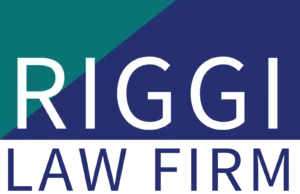Protect Yourself From Creditors By Hiring a Vegas Bankruptcy Attorney
Imagine this: you’re already buried under a mountain of bills, barely keeping your head above water. Then, BAM! A summons arrives in the mail – a lawsuit from a creditor. Your heart sinks, anxiety explodes, and suddenly, that mountain feels like it’s about to bury you alive.
Debt collection lawsuits can be stressful, overwhelming, and downright scary. But guess what? You don’t have to face them alone. And you definitely don’t have to let them drown you in worry.
Quick Summary:
- Know Your Rights Under Nevada Law
-
-
- Nevada Revised Statutes § 649.375 outlines protections against misleading tactics, extra fees, unauthorized debt sales, workplace harassment, and more.
- Violating Nevada law often means breaking the federal Fair Debt Collection Practices Act (FDCPA), providing an additional layer of protection.
-
- Federal Laws Provide Extra Safeguards
-
-
- The Federal Fair Debt Collection Practices Act (FDCPA) ensures peace, respectful treatment, transparency, verification rights, and accountability for debt collectors.
- Consumer Financial Protection Bureau (CFPB) adds social media boundaries and limits calls, enhancing consumer protection.
-
- Understanding a Summons: Respond Wisely
-
-
- A summons means a creditor filed a lawsuit. Respond within 20 days to avoid default judgment.
- Ignoring a summons could lead to serious consequences in favor of the creditor.
-
- Defenses Against Debt Collection
-
-
- Pay off the debt in full for a straightforward solution.
- Consider debt settlement if full payment isn’t feasible.
- Leverage statute of limitations as an “affirmative defense” if the debt is past its deadline.
- Explore bankruptcy for a fresh financial start with automatic stays, debt discharge, and asset protection.
-
- Bankruptcy Options: Chapter 7, 11, 13
-
- Chapter 7 provides quick relief with debt discharge but may involve asset loss.
- Chapter 11 suits businesses, allowing reorganization of debts, but is complex and costly.
- Chapter 13 offers a structured path for individuals to repay debts over time, protecting assets and rebuilding credit.
Understanding Debt Collection in Nevada
Debt collectors come knocking, but knowing your rights and understanding the steps involved can help you weather the storm. So, let’s break it down, plain and simple.
The Law Protects You
State Laws
Living in Nevada comes with some key advantages for debtors facing collection threats. Here’s a breakdown of how Nevada law shields you from unfair practices and helps you regain control of your finances.
Nevada Revised Statutes § 649.375: This law spells out what debt collectors absolutely cannot do in Nevada. This includes:
- Misleading you: They can’t pretend to be government officials or lawyers, send fake legal documents, or lie about the amount you owe.
- Charging extra fees: They can’t add hidden charges on top of your original debt unless you both agreed beforehand.
- Selling your debt without permission: Unless you and the state’s top financial regulator both approve, they can’t sell your debt to another company.
- Harassing you at work: Calling your employer or making you feel unsafe at work is strictly prohibited.
- Publicly shaming you: They can’t threaten to publish lists of debtors or advertise your debt publicly.
- Running “debt counseling” scams: If they offer debt solutions involving assigning your earnings, it’s likely illegal.
Double Protection: Remember, violating Nevada law often means breaking the federal Fair Debt Collection Practices Act (FDCPA) as well. This adds another layer of protection for you.
Federal Laws
Nevada’s strong laws offer essential protection, but don’t forget you have another powerful ally: the Federal Fair Debt Collection Practices Act (FDCPA). This law applies across the country, giving you even more safeguards against unfair debt collection tactics.
So, what does the FDCPA do for you? Here’s a taste of the protections it offers:
- Peace and quiet: No more harassing calls before 8 am or after 9 pm. Your mornings and evenings are yours to focus on solutions, not debt collectors.
- Respectful treatment: Debt collectors can’t swear, threaten, or use abusive language. You deserve to be treated with dignity, even when facing financial challenges.
- No phantom debts: If you question a debt, collectors must prove it’s legitimate. No paying for someone else’s mistakes!
- Transparency matters: Deceitful tactics are off-limits. Collectors must be upfront and honest about the debt and your options.
- Verification at your request: Unsure about the amount? You have the right to request proof of the debt amount and details.
- Hold them accountable: Violate the FDCPA? You could be entitled to up to $1,000 in damages without even proving harm. The burden of fair practices is on the collector.
- Stop the harassment, cold: If a court finds a violation, it can order the collector to halt their activities, giving you much-needed peace of mind.
Consumer Financial Protection Bureau (CFPB)
While the FDCPA sets a strong foundation, the Consumer Financial Protection Bureau (CFPB) has added another layer of protection with its 2021 Debt Collection Rule. Here’s what you need to know:
- Silence on your terms: No more constant phone calls! The CFPB limits collectors to 7 calls within 7 days or 7 days after your first conversation about a debt.
- Social media boundaries: Debt collectors can’t invade your online space. They must keep messages private and invisible to your friends and followers.
- Transparency matters: Forget about hidden identities. Collectors must clearly identify themselves as such when contacting you on social media.
- Your voice is heard: You have the power to opt out of further social media communication from a collector. They must provide a clear way to stop unwanted messages.
The Summons: What it Means and What to Do
That scary envelope containing a summons and complaint means the creditor has filed a lawsuit against you. Don’t panic! You have 20 days (unless otherwise stated) to respond. Don’t ignore it – that could lead to a default judgment in favor of the creditor.
Defenses Against Debt Collection
Pay Off the Debt
The most straightforward (and ultimately liberating) solution is to pay off your debt in full. While this might seem daunting, it’s the surest way to silence the calls and put this chapter behind you.
Settle your Debt
If paying the full amount isn’t feasible, consider debt settlement. This involves offering the creditor a lump sum payment for a portion of the debt, usually at least 60%. If they agree, you’ll be released from the remaining balance and get a fresh start.
Statute of Limitations
Your debts have a shelf life just like groceries. In Nevada, different types of debts have different “best by” dates:
- Credit cards: 4 years
- Medical debts: 6 years
- Auto loans: 6 years
- Student loans: 6 years
- Mortgages: 6 years
- Oral contracts: 6 years
- Judgments: 6 years
That means if a collector sues you over a debt older than its specific deadline, you could dismiss the entire lawsuit by raising the statute of limitations as an “affirmative defense.” This essentially tells the court the debt is past its prime and no longer legally enforceable.
File for Bankruptcy
Understanding bankruptcy as a possible path can offer a ray of hope in the darkest hour.
Bankruptcy isn’t just a last resort; it’s a legal tool designed to give you a fresh financial start. By filing for bankruptcy, you trigger the automatic stay, a powerful legal shield that immediately stops:
- Lawsuits: No more court battles over old debts. Existing lawsuits are automatically put on hold, giving you breathing room to assess your options.
- Judgments: Even if you have a judgment against you, the automatic stay freezes it. Wage garnishment, repossessions, and foreclosures are all temporarily off the table.
- Harassment: Debt collectors can’t contact you directly, making the constant calls and threats a thing of the past.
But bankruptcy isn’t just about stopping the clock; it’s about resetting your financial future. Depending on the type of bankruptcy you choose, you could:
- Discharge your debts: Eliminate certain debts entirely, wiping the slate clean and giving you a fresh start.
- Repay debts under a plan: Create a structured payment plan with reduced interest rates and monthly payments you can afford.
- Protect your assets: Stop foreclosure on your home or repossession of your car, giving you time to get back on your feet.
What are my Bankruptcy Options?
The burden of debt can feel like a heavy cloak, but bankruptcy gives you the chance to shed it and start anew. However, navigating the different chapters can be confusing. Let’s break down Chapter 7, Chapter 11, and Chapter 13.
Chapter 7: Fresh Start in a Flash
A quick debt-busting option, Chapter 7 liquidates non-exempt assets to pay off creditors. You keep exempt assets like basic household items and tools of your trade. Remaining unsecured debts (credit cards, medical bills) are generally discharged, giving you a clean slate.
Pros:
- Fast relief: Debt disappears quickly, eliminating collection calls and legal worries.
- Relatively straightforward: The process is simpler than other chapters, with minimal formalities.
- Wipe the slate clean: Discharge frees you from most unsecured debts, offering a fresh financial start.
Cons:
- Asset loss: You may lose non-exempt assets, depending on state and federal exemption laws.
- Credit score hit: Bankruptcy stays on your credit report for 7-10 years, affecting your ability to borrow money.
- Not for everyone: Individuals with high income or significant assets may not qualify.
Best for: Individuals with limited assets, struggling with overwhelming unsecured debt who prioritize a clean slate and quick relief.
Chapter 11: Restructuring for Survival
Ideal for businesses and individuals with complex financial situations, Chapter 11 allows you to reorganize your debts under court supervision. You propose a repayment plan, often involving negotiating with creditors and selling non-essential assets.
Pros:
- Save your business: Businesses can prevent closure and restructure operations.
- Retain most assets: You keep control of your assets while reorganizing your debts.
- Flexible repayment plans: Negotiate terms with creditors based on your financial realities.
Cons:
- Expensive and complex: Requires significant legal and financial expertise, making it costly.
- Time-consuming: The process can take months or even years to complete.
- Risky: If the plan fails, you could face asset liquidation or conversion to Chapter 7.
Best for: Businesses in financial distress, individuals with significant assets and income seeking to retain control over their finances and reorganize debt under court protection.
Chapter 13
For individuals with regular income and manageable debt, Chapter 13 provides a structured path to repay your debts over 3-5 years. You make monthly payments to a court-appointed trustee who distributes the funds to creditors.
Pros:
- Keep your assets: You avoid asset liquidation unless your plan fails.
- Reduce debt amount: You may negotiate lower interest rates and penalties on your debts.
- Rebuild credit: Making consistent payments can improve your credit score over time.
Cons:
- Long-term commitment: Requires strict adherence to the repayment plan for several years.
- Failure consequences: Failing to make payments can lead to dismissal of the case and potentially liquidation.
- Not for everyone: Individuals with high debt or unreliable income may struggle to meet plan requirements.
Best for: Individuals with a steady income and manageable debt who want to avoid asset loss, reduce debt amounts, and rebuild their credit through a structured repayment plan.
Why Do I Need an Attorney to Stop Judgment in Nevada?
Facing a judgment in Nevada can be scary, but you don’t have to battle this alone. Going it alone in the debt maze is risky and confusing. Here’s why having a qualified attorney on your side makes all the difference:
- Lawyers know the rules: Debt collection laws are complex, with deadlines and exceptions you might miss. An attorney navigates these complexities to protect your rights.
- They fight for your money: Judgments can lead to wage garnishment and asset seizure. An attorney fights to keep your hard-earned money safe and prevent financial hardship.
- They find the best solutions: Each case is unique. An attorney evaluates your situation and explores all options, from arguing time limits to negotiating settlements or even bankruptcy.
Stop Debt Lawsuits with our Las Vegas Attorney Now!
Feeling lost in the labyrinth of debt and legal complexities in Nevada? You’re not alone. Many struggle with the intricate paths of debt collection, bankruptcy, and related legal hurdles. That’s where Riggi Law Firm steps in, offering a compass and a steady hand to guide you through the darkness.
Why Riggi Law Firm?
- Been there, done that: Over a decade navigating Nevada’s legal landscape, helping countless clients find their way free.
- One of a kind experience in bankruptcy: In Las Vegas, only a handful of attorneys – a mere 24% – have been practicing bankruptcy for over 10 years. Even fewer have the combined experience of:
- Bankruptcy law clerk for a federal judge
- Attorney for the United States
- Nationally recognized as a top 2% attorney
Only David A. Riggi, founder of Riggi Law Firm, embodies this exceptional combination, providing unparalleled depth and breadth of knowledge in all facets of debt and bankruptcy law.
- No cookie-cutter solutions: We listen to your story and craft a personalized plan to fit your unique needs.
- No legal mumbo jumbo: We explain everything in plain English, keeping you informed and empowered.
- Your champion in tough times: We understand the emotional toll of debt and fight for your best interests with compassion and respect.
Don’t let debt control your future. Take the first step towards financial freedom and peace of mind. Contact Riggi Law Firm today for a free consultation. Let’s find your escape route, together.
















